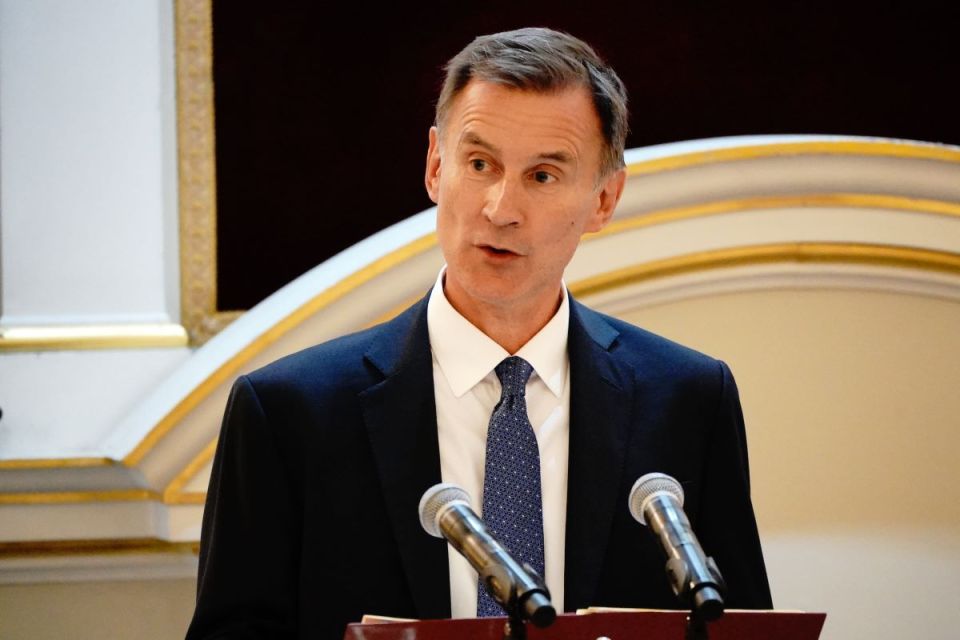Hunt is right to rest his hopes for growth on the City, but it will still need a helping hand

Jeremy Hunt is banking on the City bailing out the UK economy – and it can if he gives it the reforms it needs, writes Michael Moore.
The days when private equity and venture capital were a niche factor in the UK economy are long gone. The UK’s battle to return to strong growth, rising incomes and economic stability will depend on business investment. Private capital is at the heart of that.
It is no surprise then that on Monday the Chancellor, Jeremy Hunt, used his Mansion House speech to announce reforms which will see more UK pension savings invested in private capital.
The UK has the largest pension market in Europe, worth over £2.5tn. Unlocking just a fraction of that to invest in private capital is good for pension savers, businesses and the economy.
Our research has found that in the last year pension funds from outside the UK invested 16 times more in British private capital than pension funds based here. Retirees in Ontario and California are reaping the benefits of investing in British businesses. The Chancellor is right to push for UK retirees to get the same.
The private capital industry in the UK has continuously outperformed the public markets. As of last year, the sector provided a return of 17 per cent per year – well above the returns generated in public markets like the FTSE 250. These returns inform the Chancellor’s claim that his reforms could boost a typical pension by over £1000 per year. It is welcome news for savers.
The reforms will also provide a much-needed boost to British business and productivity. Our nation is the birthplace of some of the world’s most innovative start-ups. We are leaders in biotech, fintech and AI, and the start-ups which drive those innovations need investors and backing.
But there are few funds large enough in the UK to lead on the larger deals when it comes to later-stage venture capital funding and growth private equity. Unable to find the capital they need here, businesses go elsewhere – across the Atlantic in particular. As a result, the UK is losing talent, intellectual property, and the economic champions of the future. Ensuring more of them stay here should be a priority. The Mansion House reforms will help do that.
However, as welcome as the reforms are, this must be the start, not the end, of a process. Many of these measures will only begin to be felt in a few years, maybe more. The Chancellor should seize the momentum over the coming months and go further.
The UK remains a massive outlier with a very fragmented market – there are 28,000 defined contribution pension schemes. To get real scale in our pension system these reforms can only be the start.
The success of Australian and Canadian pension schemes is frequently attributed to size, which in turn, bring economies of scale. This allows them to provide better value for money and ultimately achieve better retirement outcomes for savers. The chancellor’s commitment to getting to a similar model was clear at Mansion House.
The UK has one of the largest pensions markets in the world and yet years of fragmentation, of short-sighted focus on costs over net returns, and well-intentioned risk-aversion means that overseas pensions invest considerably more in British venture capital and private equity than homegrown funds. We should be radical in giving schemes the freedom and the tools to build properly diversified, global investment portfolios.
If the UK is to become world-class not just at creating knowledge-intensive companies but also at scaling them up, this must be the start, not the end of reform.
